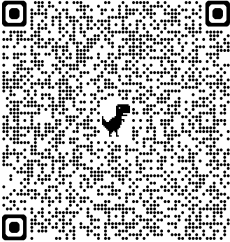
1st International Conference on Computational Intelligence and Cyber Physical Systems (CICPS 2026)
Jointly Organized By:
Govt. College Of Engineering & Ceramic Technology, Kolkata (GCECT)
School of Mobile Computing and Communication, Jadavpur University (JU)
Department of Computer Science and Engineering & A. K. Choudhury School of Information Technology, University of Calcutta(CU)
2nd and 3rd January, 2026

 Link for CICPS 2026 Technical Session 9 (Online @ Saturday, January 3 / 4:00 – 6:00pm)
Link for CICPS 2026 Technical Session 9 (Online @ Saturday, January 3 / 4:00 – 6:00pm)
 Link for CICPS 2026 Technical Session 8 (Online @ Saturday, January 3 / 2:45 – 4:30pm)
Link for CICPS 2026 Technical Session 8 (Online @ Saturday, January 3 / 2:45 – 4:30pm)
 Link for CICPS 2026 Keynote Speaker (Online @ Saturday, January 3 / 11:00am – 12:00pm)
Link for CICPS 2026 Keynote Speaker (Online @ Saturday, January 3 / 11:00am – 12:00pm)
 Link for CICPS 2026 Technical Session 3 (Online @ Friday, January 2 / 3:45 – 6:00pm)
Link for CICPS 2026 Technical Session 3 (Online @ Friday, January 2 / 3:45 – 6:00pm)
 CICPS 2026 Program Schedule (2nd & 3rd Jan, 2026)
CICPS 2026 Program Schedule (2nd & 3rd Jan, 2026)
 CICPS 2026 Paper Presentation Schedule (2nd & 3rd Jan, 2026)
CICPS 2026 Paper Presentation Schedule (2nd & 3rd Jan, 2026)
 Details of the presenter and author(s) for a certificate (CICPS 2026 Accepted Papers Only)
Details of the presenter and author(s) for a certificate (CICPS 2026 Accepted Papers Only)
 Link for CICPS 2026 Technical Session 8 (Online @ Saturday, January 3 / 2:45 – 4:30pm)
Link for CICPS 2026 Technical Session 8 (Online @ Saturday, January 3 / 2:45 – 4:30pm) Link for CICPS 2026 Keynote Speaker (Online @ Saturday, January 3 / 11:00am – 12:00pm)
Link for CICPS 2026 Keynote Speaker (Online @ Saturday, January 3 / 11:00am – 12:00pm)
 Link for CICPS 2026 Technical Session 3 (Online @ Friday, January 2 / 3:45 – 6:00pm)
Link for CICPS 2026 Technical Session 3 (Online @ Friday, January 2 / 3:45 – 6:00pm)
 CICPS 2026 Program Schedule (2nd & 3rd Jan, 2026)
CICPS 2026 Program Schedule (2nd & 3rd Jan, 2026)
 CICPS 2026 Paper Presentation Schedule (2nd & 3rd Jan, 2026)
CICPS 2026 Paper Presentation Schedule (2nd & 3rd Jan, 2026)
 Details of the presenter and author(s) for a certificate (CICPS 2026 Accepted Papers Only)
Details of the presenter and author(s) for a certificate (CICPS 2026 Accepted Papers Only)
 Link for CICPS 2026 Technical Session 3 (Online @ Friday, January 2 / 3:45 – 6:00pm)
Link for CICPS 2026 Technical Session 3 (Online @ Friday, January 2 / 3:45 – 6:00pm) CICPS 2026 Program Schedule (2nd & 3rd Jan, 2026)
CICPS 2026 Program Schedule (2nd & 3rd Jan, 2026)
 CICPS 2026 Paper Presentation Schedule (2nd & 3rd Jan, 2026)
CICPS 2026 Paper Presentation Schedule (2nd & 3rd Jan, 2026)
 Details of the presenter and author(s) for a certificate (CICPS 2026 Accepted Papers Only)
Details of the presenter and author(s) for a certificate (CICPS 2026 Accepted Papers Only)
VENUE: STPI Kolkata, Plot-5/1, Block-DP, Sector- V, Salt Lake, Kolkata -700091 
Technical Sponsor 
Awards
Best Paper Awards
Best Conference Paper Awards
₹10,000
Best Track Paper Awards
₹2,000

Industry Symposium
Industry Experts will deliver presentations, engage in panel discussions, and participate in interactive sessions
Register Now
Important Dates
Paper Submission Date:Paper Submission
Submit your Paper Now
Microsoft CMTThe Microsoft CMT service was used for managing the peer-reviewing process for this conference. This service was provided for free by Microsoft and they bore all expenses, including costs for Azure cloud services as well as for software development and support.
Paper Publications
Accepted and presented papers will be published in the SCOPUS indexed Springer Book Series “Lecture Notes in Networks and Systems” https://www.springer.com/series/15179
International Conference on Computational Intelligence and Cyber Physical Systems (CICPS)
This conference would serve as a critical platform to explore the intersection and integration of Computational Intelligence (CI) methodologies with Cyber-Physical Systems (CPS). It objectives are showcase how intelligent, adaptive, and nature-inspired computational techniques are essential for designing, operating, and securing the next generation of interconnected physical and digital infrastructures. CI deals with complex, real-world problems that might be uncertain, imprecise, or too complex for traditional mathematical modelling. Cyber-physical systems (CPS) are societal-scale engineered systems that are built from, and depend upon, the seamless, correct and safe integration of physical processes, computation components, and in most cases also human supervisors. As cyber physical systems are a multidisciplinary field, the engineering requires theoretical analysis, advanced heuristics, artificial intelligence, security methodologies and big data to work seamlessly together. The deployment of the system is profoundly transforming how we interact with the physical world, just as the world wide web transformed how we interact with one another. Impact of computational intelligence on these systems are visible across a number of challenging domains including autonomous systems, agriculture, aeronautics, building design, civil infrastructure, energy, environmental quality, healthcare and personalized medicine, manufacturing, and transportation. Further integration and innovations in domain will continue to have an enormous societal and economic impact.
The International Conference on Computational Intelligence and Cyber Physical Systems (CICPS), serves as the foremost platform to showcase and discuss ground breaking technical research contributions shaping the field of CPS. The conference will bring together industry experts, researchers, and academics to exchange insights and experiences on frontier technologies, ground breaking research, and innovative solutions within the CICPS and digital transformation with aid of AI and its various applications. With a rich and diverse program, the conference will present research and innovation papers, alongside compelling special sessions, engaging exhibitions, and an industry forum showcasing subjective industry talks. Schedule now to be part of this spectacular and highly anticipated event, taking place Jan 2-3, 2026 in Kolkata, India.
This conference has been divided into five tracks where, we are inviting papers to be submitted in: (i) Artificial Intelligence, Machine Learning and Deep learning, (ii) Augmented reality, Virtual Reality, Digital Twining, (iii) Internet of Things and Sustainable Development, (iv) Distributed Computing, Edge, Fog and Cloud Computing, and (v) Network, Data, Cloud, and Cyber Security, Block chain.
Hybrid presentation mode is available for outstation and international participants, allowing them to present their papers either in person at the venue or virtually via an online platform.
Conference Track
We invite original, high-quality research contributions in the following five thematic tracks:
Track 01: Artificial Intelligence & Data Science
Explore the forefront of AI innovation—ranging from foundational theory to real-world applications. This track provides a robust platform for exchanging theoretical advances, algorithmic innovations, impactful applications, and critical reflections on the societal implications of AI and ML. Engage with cutting-edge research and contribute to shaping the future of intelligent technologies.
We welcome submissions covering:
- Advanced machine learning models and optimization techniques
- Deep learning architectures and frameworks
- Interdisciplinary applications across healthcare, robotics, natural language processing, etc.
- Societal and ethical considerations in the deployment of intelligent systems
* including but not limited to
Track Chair
Dr. Chandreyee Chowdhury, Jadavpur University
Dr. Kingshuk Chatterjee, Government college of Engineering & Ceramic Technology, Kolkata
Dr. Jayeeta Saha, Manipal University, Bengaluru
Track 02: Augmented reality, Virtual Reality, Digital Twin System
As the boundaries between physical and digital realities blur, this track highlights advances in AR/VR environments and digital twins that enable real-time visualization, simulation, and optimization of complex systems. Share novel insights, prototypes, and case studies advancing this exciting field. Dedicated to immersive experiences and intelligent digital replicas, this track invites contributions in:
- AR/VR system design, interfaces, and user experience
- Real-time simulation, modeling, and integration
- Digital Twin systems for industrial, urban, medical, and educational applications
- Sensor data integration, edge computing for real-time synchronization
* including but not limited to
Track Chair
Dr. Debashis De, MAKAUT, West Bengal
Mr. Abhijan Bhattacharyya, Senior Scientist, Network Solutions & Services (NSS), TCS
Dr. Debayan Ganguly, GCELT, Kolkata
Track 03: Internet of Things and Sustainable Development
With IoT positioned as a cornerstone for sustainable innovation, this track explores how intelligent sensing and data connectivity can reduce waste, enhance efficiency, and contribute to global sustainability goals. Contributions on policies, frameworks, and real-world deployments are highly encouraged. Examine how connected technologies drive sustainability across various sectors. Topics include:
- Smart agriculture, cities, and energy systems
- Green IoT architectures and energy-efficient designs
- Environmental monitoring and adaptive control systems
- Data-driven decision making for sustainable growth
* including but not limited to
Track Chair
Dr. Shantanu Pal, Deakin University, Australia
Dr. Biswajit Debnath, IIT Gandhinagar
Dr. Zeenat Rehena, Aliah University, Kolkata
Track 04: Distributed Computing
This track offers a comprehensive look into scalable, resilient, and low-latency computing paradigms. Share breakthroughs that enable ubiquitous intelligence through seamless integration of cloud, edge, and fog computing. Explore the next generation of decentralized computing ecosystems. This track covers:
- Resource orchestration across cloud-edge continuums
- Real-time data analytics at the edge
- Fault-tolerant and latency-sensitive architectures
- Use cases in autonomous vehicles, industry 4.0, and more
* including but not limited to
Track Chair
Dr. Punyasha Chatterjee, Jadavpur University, Kolkata
Dr. Benay Ray, Jawaharlal Nehru University, New Delhi
Dr. Rajib Kumar Das, University of Calcutta, Kolkata
Track 05: Security
This track focuses on the evolving cybersecurity landscape, examining strategies for protecting critical infrastructure, ensuring data integrity, and leveraging blockchain for decentralized digital trust. Engage with research that safeguards the future of interconnected systems. Dive into the secure backbone of digital transformation. Topics include:
- Secure network protocols and cloud-native architectures
- Cyber threat detection, prevention, and resilience
- Blockchain for trust, transparency, and decentralized control
- Secure data governance, privacy, and compliance
* including but not limited to
Track Chair
Dr. Pritha Banerjee, University of Calcutta, Kolkata
Dr. Tanmoy Maitra, KIIT, Odisha
Dr. Debasis Giri, MAKAUT, West Bengal
